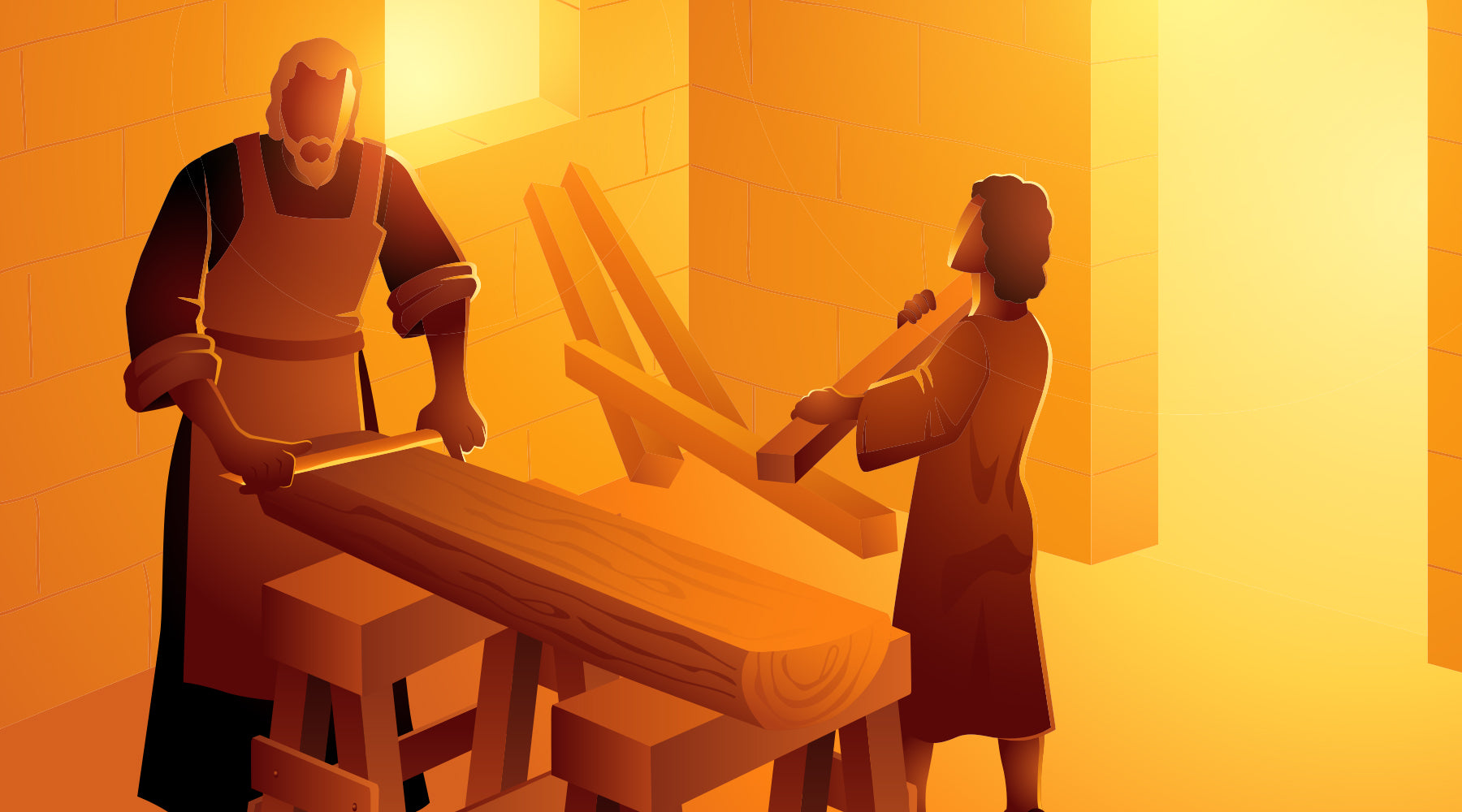Article: When You Hate, You Work Towards Your Own Demise
When You Hate, You Work Towards Your Own Demise
Nothing New Here
Ecclesiastes 1:9 states that everything that happens has happened before—nothing is new under the sun. As I read this scripture alongside the Book of Esther, several thoughts came to mind, particularly two. First, regardless of time, place, or culture, beauty standards and the physical "offerings" from women has always significantly dictated a woman's value in society. Secondly, the abuse of undeserved power fueled by greed, hate, and misguided values has been present since the fall of Adam, and it is evident in our first-world society. People who are deemed not part of the established power structure and do not assimilate, do not serve the interests of the power structure, or attempt to gain access to it are unrighteously and trivially persecuted. With that in mind, let's delve deeper into the story of Esther.
The Massive Feast
Esther begins in the third year of King Xerxes I (Ahasuerus) 's reign. Xerxes ruled over a vast territory that included 127 provinces, extending from India to Ethiopia—a distance of at least 2,800 miles. To display his power and wealth, he hosted a 180-day banquet that was attended by his military leaders, nobles, and princes from the provinces. While the length of the feast may seem excessive, it served to strengthen loyalty among his allies and to build support for his eventual military strikes against the Greeks.
The Susa Celebration
After the lavish 180-day feast, Xerxes held an additional seven-day celebration for everyone in the Persian Capital of Susa. Food and wine were unlimited, and luxury was evident at every turn. Folks lounged on couches made of silver and gold, sipping "drinks" from designer golden goblets. During this event, Xerxes requested that his Queen, Vashti, showcase her beauty. She must have thought the request was petty because the lady refused. Being drunk and embarrassed is not a good combination, so you know Xerxes did not take the act of defiance well. In response, he sought advice from his highest officials. They concluded that Vashti's actions could become known to all women, potentially encouraging them to disobey their husbands as well.
Woman Obey
A royal decree was issued declaring that Vashti would be banned from the King's presence and that her royal position would be given to another woman. Letters were dispatched to all the provinces of the kingdom, stating that every man should be the master of his own household. Vashti's refusal to display her beauty set the stage for Esther.
Who is Hadassah
Hadassah, or Esther in Persian, is noted in the bible as having a lovely form and appearance. She was raised by her cousin Mordechai, who took her in as his daughter after her parents died when she was young. Both were from the tribe of Benjamin but were living as exiled immigrants in Persia due to the Babylonian conquest of Judah.
No Choice
After some time, a royal decree ordered officials in the 127 provinces to gather the most beautiful virgins and transport them to the Capitol of Susa. There, these women with various ethnicities, cultures, and languages would be placed in a harem under a eunuch. Esther was "taken" to join the harem, and Mordechai advised her to conceal her Jewish heritage. I emphasized "taken" because it is very likely the women did not have a choice in joining the harem; royal harems were often established by force or decree.
Unfair Competition
Before presenting to the King, each woman had to undergo a required twelve-month regimen of beauty treatments—six months with oil of myrrh followed by six months of perfumes and cosmetics. Esther gained favor with the eunuch in charge, receiving special treatment including a unique diet, seven maidservants, and a prime location in the harem. With 127 plus women placed in the position of "competing" for the queenship, how do you think those women felt about Esther?
Hurt Feelings
After the beautification process, each woman was presented to the King in the evening and stayed with him until morning. By morning, I can bet the woman was not a virgin. If the King was not delighted by a woman, she was returned to the concubine group. My feelings would be hurt…Can you imagine how you would feel? Fortunately for Esther, when it was her turn, the King found her exceptionally beautiful and favored her. In his seventh year of reign, Xerxes crowned Esther as the Queen of Persia.
Watchful Mordechi
When Esther was taken into the harem, Mordecai demonstrated his love for her by visiting the palace gates every day to keep watch over her. One day, he overheard a plot by two gatekeepers to assassinate King Xerxes. Mordecai informed Esther, and she relayed the message to the King, ultimately saving his life. Mordecai's actions were recorded in the Book of Chronicles, which was maintained for the King. Make a mental note of this….
Take a Bow
According to Xerxes' command, individuals were required to bow to high-ranking officials. His highest official was Haman, who held a rank greater than that of the nobles and princes. Like some present-day leaders, Haman was the type who craved more than just political respect; in his arrogance, he expected divine-like honor.
The Problem Arrives
While Mordechai was at the gates, some of the eunuchs noticed that he consistently refused to bow to Haman. They asked him why he disobeyed the King's command. Mordechai informed them he was a Jew. His religious and moral convictions prohibited him from bowing and committing an act of idolatry. Consequently, the eunuchs reported Mordechai's defiance to Haman and inquired whether such behavior would be tolerated. This news enraged Haman.
Unhinged Authority
Punishing Mordechai was not enough for Haman; he wanted to target the entire Jewish population. To achieve this, he used his influence to persuade Xerxes to issue a decree to all 127 provinces that authorized the annihilation of all Jews on a specific day, along with the confiscation of their possessions. What was the stated reason for such a monumental "executive order?" It was claimed that the Jewish laws differed from those of the other people, and that they refused to obey the King's laws; therefore, they should not be tolerated. Trivial, right?
A Nation Mourns
The decree was issued, and Mordechai, along with Jews across the provinces, entered a period of mourning. They wore sackcloth and expressed their grief and anger by wailing bitterly in the streets. Esther became aware of Mordechai's distress and sought to understand what was troubling him. Mordechai responded by sending Esther the written decree that called for the destruction of the Jews. He requested that she intervene by speaking to Xerxes and pleading on behalf of their people.
Willing to Perish
Esther sent a message back to Mordecai, explaining that the law prohibited anyone from approaching the King without being summoned, and she had not been called in the last 30 days. If she went to see him, it could cost her life. Mordecai replied, reminding her that merely being in the King's palace did not guarantee her safety. He urged her to consider that maybe her position in the palace was meant to serve the purpose of saving her people.
After receiving his message, Esther instructed the Jews in Susa to fast for her, abstaining from food and drink for three days and nights. She vowed to do the same along with her maidservants. Following the fast, she resolved to approach the King, even if it meant risking her life.
Prayer Changes the Atmosphere
After the fast, Esther adorned herself in royal attire and positioned herself strategically in Xerxes' view. When he saw her, he found favor in her and allowed her to approach. Xerxes asked Esther what she desired because he would give her up to half of the kingdom. Esther's simple request was to prepare a banquet for him and Haman to attend. Xerxes fulfilled the request. At the banquet, they ate, and the wine flowed. Xerxes asked Esther again about her desire. Her response was for him and Haman to attend another banquet the following day, at which she would make her petition.
Hate Disrupts Joy
After the first banquet, Haman feels proud to be honored with a private banquet alongside the King and Queen. However, his joy quickly turns to anger when he sees Mordecai at the King's gate, still refusing to bow to him. Following the advice of his wife and friends, Haman has a 75-foot gallows constructed at his home to hang Mordecai the next day.
Chronicle Recap
Meanwhile, that night, Xerxes can't sleep and asks for the royal chronicles to be read. He discovers that Mordechi had once saved his life but was never rewarded. At this juncture, Haman enters asking to have Mordecai executed. Before he could speak, Xerxes asked what should be done for someone he wanted to honor. Thinking he is being asked about himself, Haman suggests elaborate honors. Ironically, the King ordered Haman to honor Mordecai in the way he suggested. Haman is humiliated when he is forced to publicly celebrate his enemy.
The Reveal
The time for the second banquet arrives. After the wine was flowing, Xerxes once again asked Esther what she desired. Strategically, she reveals her identity as a Jew and pleads for not only her life but also the lives of her people. She further exposes the plot to annihilate them. Xerxes is shocked and demands to know who would dare to commit such an act. Esther declares, "An adversary and enemy! This wicked Haman!" Xerxes becomes furious, while Haman is left petrified.
Questionable Judgement
But wait a minute… Did Xerxes forget that he had previously discussed the very "executive order" with Haman to kill Esther's people and that he had authorized the decree with his signet ring? Is Xerxes impulsive? Did he not understand the consequences of what he set in motion? According to the Greek Historian Herodotus, Xerxes made the decision to invade Greece while intoxicated. I question his judgment...
When You Hate, You Work Towards Your Own Demise.
So, what happened after the banquet
- Xerxes ordered Haman to be executed on the same gallows he had created to execute Mordechai.
- A decree was signed revoking the previous decree to destroy the Jews. Additionally, the Jews were given the right to defend themselves against anyone who still tried to annihilate them. In defense of themselves, the Jews killed close to 76,000 across the territory of Xerxes. Among those killed were Haman's 10 sons.
- King Xerxes awarded Esther the estate of Haman. Esther made Mordecai the overseer of the estate.
- Mordechai assumed the position of Haman and held the second-highest position in the kingdom, next to the King. With Mordechai in a position of power, the Jews were able to live peacefully under the rule of Xerxes.
- A decree established the Festival of Purim in remembrance of the Jews' deliverance.
Finding a Confident Identity Beyond Beauty
Although she entered the position as Queen with little choice, once in the palace, Esther exercised wisdom, courage, and faith, ultimately using her influence to intercede on behalf of her people. She demonstrated how leadership and privilege can be leveraged to protect the vulnerable and speak out against injustice, unlike Haman, who used his position for a personal vendetta that ultimately led to his own demise. Esther is a prime example of how each of us has a unique purpose. We may find ourselves in particular situations due to worldly reasons. Still, ultimately, God uses our positioning to fulfill a divine purpose.
The Presence of an Unmentioned God
Though God's name is never mentioned in the Book of Esther, the timing of events—Esther becoming Queen, the King's sleepless night, Mordecai being honored—all point to divine orchestration. In addition, actions such as the prominence of Mordechai's faith and Esther's direction to the Jews to fast reference divinity. The Book of Esther illustrates that evil may seem to prosper for a time. Still, justice ultimately prevails, often in unexpected ways. As referenced earlier in Ecclesiastes, like in biblical days, we are experiencing our society hemorrhaging from unhinged "Hamans" using power recklessly to oppress marginalized people. However, we should take the example given by Esther and her people, that spiritual preparation (fasting, etc.) and communal support are powerful tools when facing destruction.
For more in-depth details, read the Book of Esther, Chapters 1-10.





Leave a comment
This site is protected by hCaptcha and the hCaptcha Privacy Policy and Terms of Service apply.